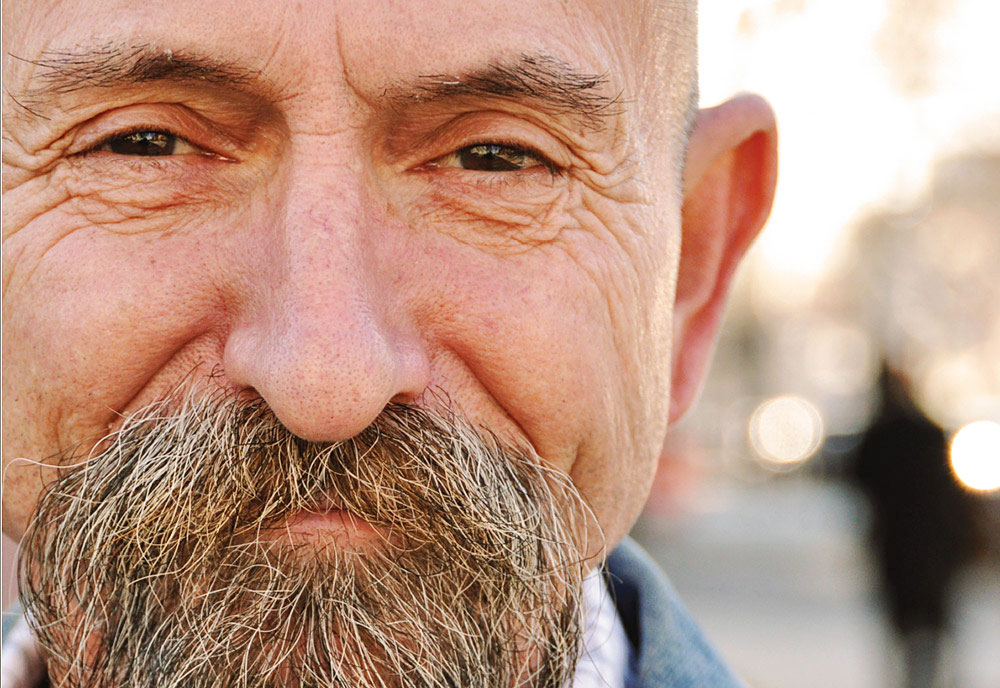Veterans Health Administration
Veterans with PTSD Reclaiming Their Lives

US Army Veteran Ron Whitcomb
AboutFace is a website dedicated to improving the lives of Veterans with posttraumatic stress disorder (PTSD). It’s where Veterans can learn about PTSD, explore treatment options and, most importantly, hear real stories from other Veterans and their family members and get advice from clinicians who have treated thousands of cases of PTSD.
Video featuring Major Joshua Brandon
Major Joshua Brandon has been an Infantry Officer with the U.S. Army since 2002 and he has PTSD. Difficult memories were triggered when he was driving to the grocery store in Tennessee and he would smell the smoke from backyard fires.
“I started looking for threats in all directions. My adrenaline would spike. I had to pull over and talk myself out of it.”
Major Brandon has the courage to talk about his experience and how VA has helped him with his PTSD on the website AboutFace. Learn about posttraumatic stress disorder from Veterans who have experienced it. Hear their stories. Find out how treatment turned their lives around.
You’ll see other Veterans from different eras and diverse backgrounds, of all ages and experiences — willing to share their stories to help other Veterans with PTSD.
I’m enjoying life again. I’m having fun.
It’s just one of the many resources available to help Veterans learn about PTSD and to seek treatment.
As Dr. Sonya Norman says, “A key message I want to get across is that effective treatments are available for PTSD and they help people recover and feel better.” Dr. Norman is VA’s PTSD Consultation Program Director with the National Center for PTSD.
What is PTSD? What are your treatment options? You can find some quick and easily accessible information here. What is “Cognitive Processing Therapy?” There’s a short video there which explains it. It can help you break the negative thinking that’s holding you back.
Video featuring Dr. Sonya Norman
Take the mystery out of PTSD treatment. The VA clinicians on this site tell you what to expect and make taking that first step a lot easier. Learn more about what getting treatment actually entails and hear VA clinicians talk about treatment that can help Veterans make the decision.
Dr. Norman describes how, “Veterans tell me ‘I’m enjoying life again. I’m having fun. I love holding my baby.’”
There are several effective treatments for PTSD and information about these can be found here.
Video featuring Lt. General James B. "Jim" Vaught
Lt. General James B. "Jim" Vaught will tell you they called it “battle fatigue” when he fought in the Korean War. And anybody can have it.
“PTSD, it doesn’t give a damn about your rank. It’s going to knock hell out of you every now and then.” Listen to his story here.
General Vaught served in the U.S. Army from 1945 to 1983 in Germany, Iran, Japan, Korea, Turkey, United States, and Vietnam.
If you want to learn more, look these at different materials available.
Here you can also get started learning some tools to help with PTSD on your own. It’s a PTSD Coach Online for anyone who needs help with upsetting feelings. Trauma survivors, their families, or anyone coping with stress can benefit from PTSD Coach Online.
(This site isn’t a substitute for recovery oriented treatment but offers some great tools to help people with their symptoms.)
What can I do if I think I have PTSD?
Finally, here’s more background information about PTSD and why it’s important to get treatment.



















